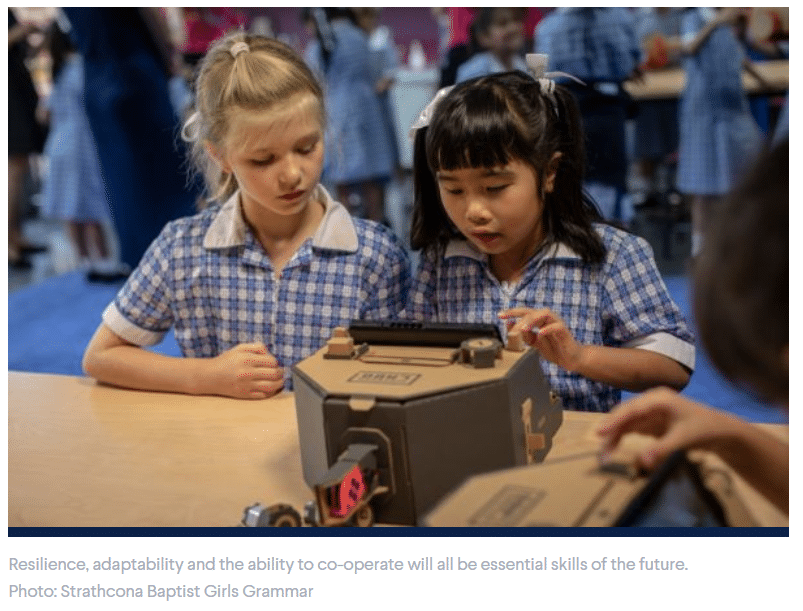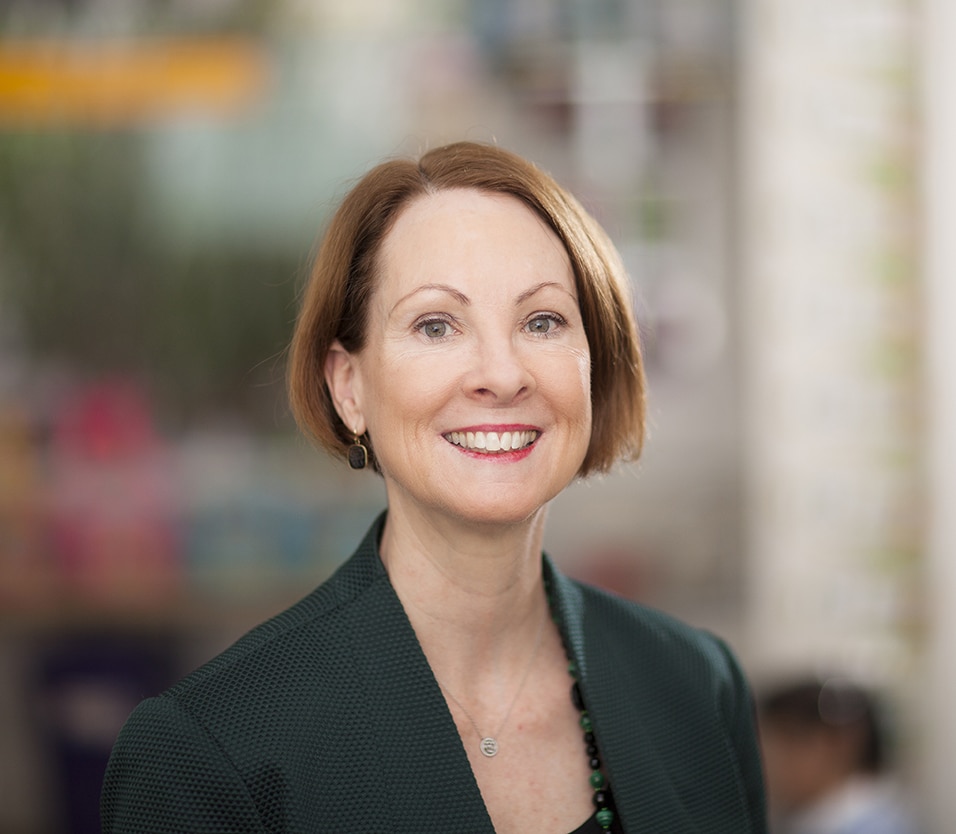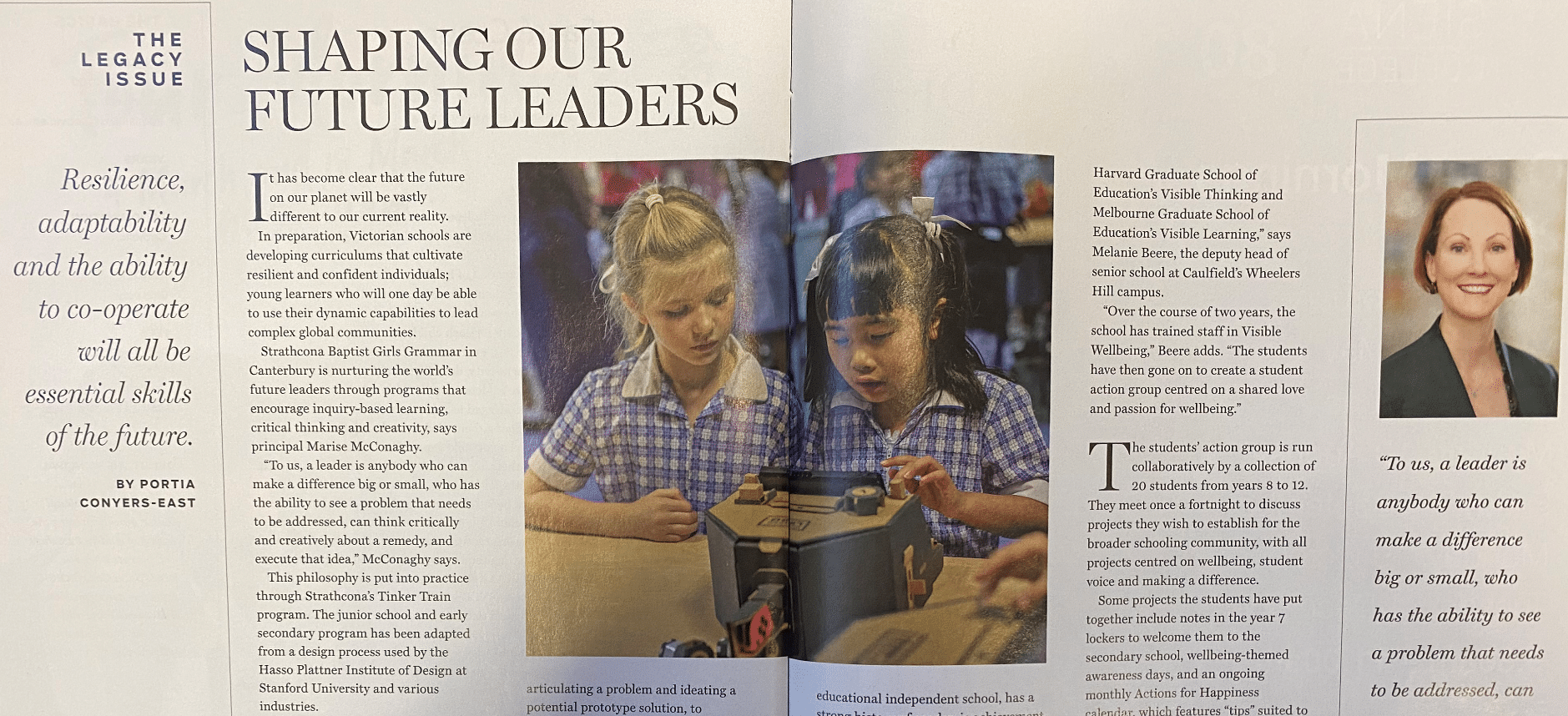AS seen in Independent Schools Guide 2020. Review. PORTIA CONYERS-EAST
It has become clear that the future on our planet will be vastly different to our current reality.
In preparation, Victorian schools are developing curriculums that cultivate resilient and confident individuals; young learners who will one day be able to use their dynamic capabilities to lead complex global communities.

Strathcona Baptist Girls Grammar in Canterbury is nurturing the world’s future leaders through programs that encourage inquiry-based learning, critical thinking and creativity, says principal Marise McConaghy.
“To us, a leader is anybody who can make a difference big or small, who has the ability to see a problem that needs to be addressed, can think critically and creatively about a remedy, and execute that idea,” McConaghy says.
This philosophy is put into practice through Strathcona’s Tinker Train program. The junior school and early secondary program has been adapted from a design process used by the Hasso Plattner Institute of Design at Stanford University and various industries.
Using a visual metaphor, students who undertake the Tinker Train program are tasked with progressing through the stages of solving an authentic problem.
“We want our students to look beyond what is already available … beyond technologies and solutions that already exist … towards solutions that are new and different,” McConaghy says.
“As students progress through the metaphorical ‘train’, they move from the acquisition of knowledge, to articulating a problem and ideating a potential prototype solution, to physically creating the solution, and sharing and explaining their decision with peers and teaching staff.”
The Tinker Train program prepares students from a young age to challenge the unknown, be resilient and courageous, and show initiative while working collaboratively to solve problems. “We want our students to be empowered in their learning and confident in their abilities,” says McConaghy.
“To us, a leader is anybody who can make a difference big or small, who has the ability to see a problem that needs to be addressed, can think critically and creatively about a remedy, and execute that idea,” Marise McConaghy says.

Caulfield Grammar School, a co-educational independent school, has a strong history of academic achievement and engaging students to achieve exceptional results. However, Caulfield prides itself on being about more than academic achievements. They are committed to nurturing students to become capable and highly skilled, but also emotionally aware, says Melanie Beere, the deputy head of senior school at Caulfield’s Wheelers Hill campus.
“The Visible Wellbeing approach, designed by Professor Lea Waters, draws on the latest research and ideas from three evidence-based education movements: the University of Pennsylvania’s Positive Education, Harvard Graduate School of Education’s Visible Thinking and Melbourne Graduate School of Education’s Visible Learning,” says Beere.
“Over the course of two years, the school has trained staff in Visible Wellbeing,” Beere adds. “The students have then gone on to create a student action group centred on a shared love and passion for wellbeing.”
The students’ action group is run collaboratively by a collection of 20 students from years 8 to 12. They meet once a fortnight to discuss projects they wish to establish for the broader schooling community, with all projects centred on wellbeing, student voice and making a difference.
Some projects the students have put together include notes in the year 7 lockers to welcome them to the secondary school, wellbeing-themed awareness days, and an ongoing monthly Actions for Happiness calendar, which features “tips” suited to that month’s theme.
“The students have full autonomy over the ideas they create for Visible Wellbeing, and they are never short on ideas,” Beere says.
“The program is nurturing and cultivating students with high emotional intelligence … they are active listeners, can work collaboratively, have empathy and can ‘read’ people and situations, which is imperative to creating any kind of future leader.”
This article featured in Domain Review’s 2020 Independent Schools Guide.


